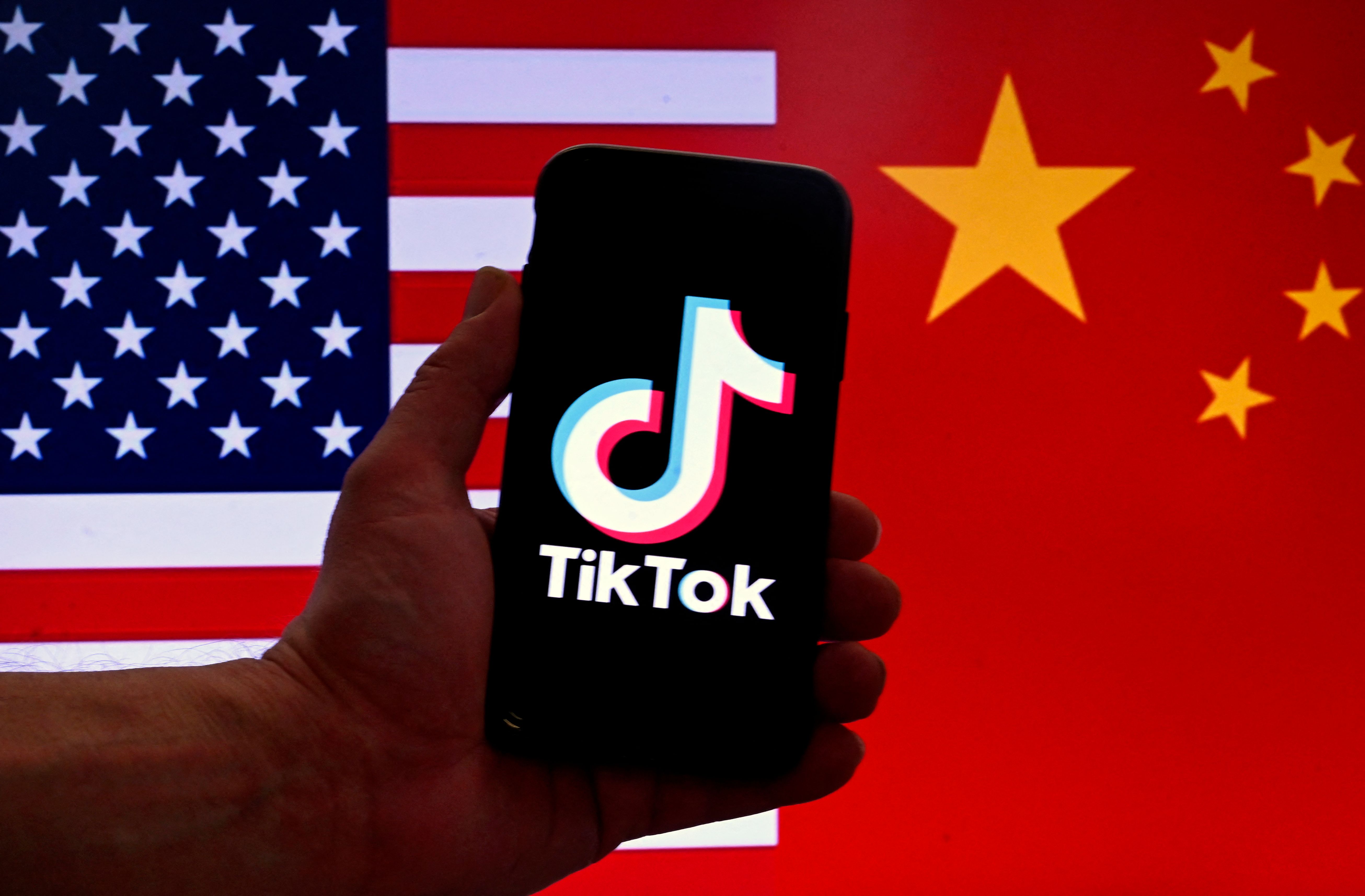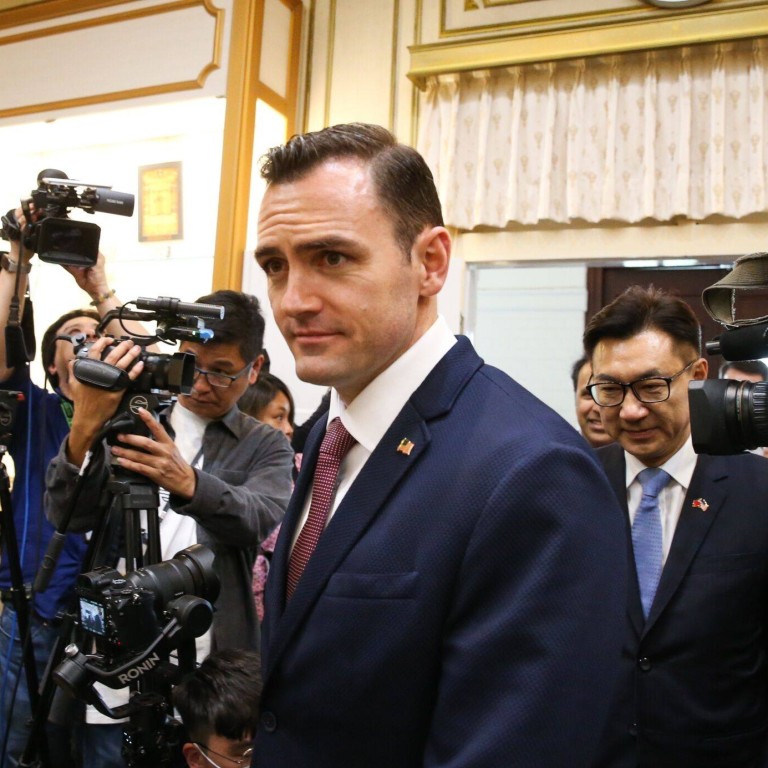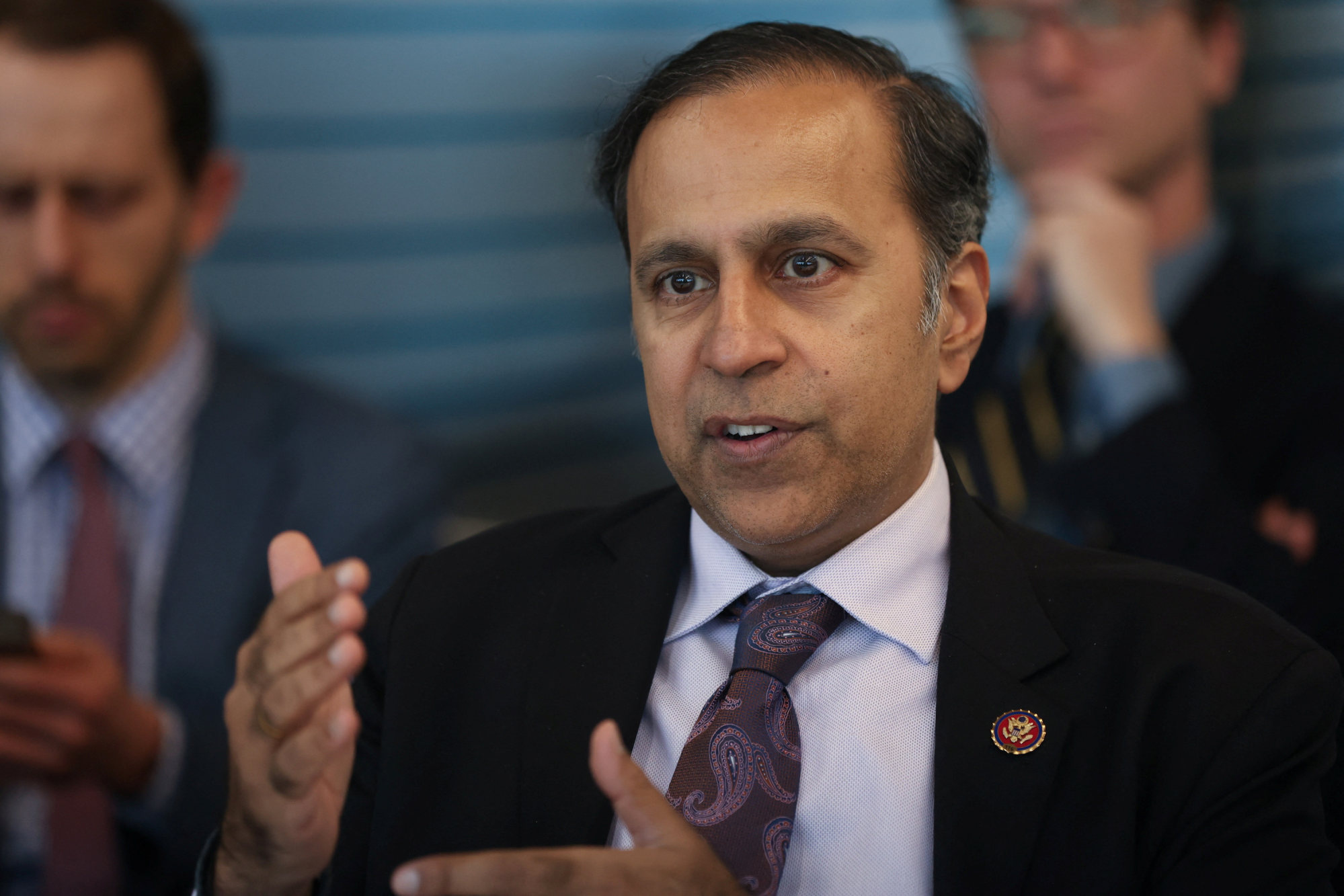
TikTok told to break with China’s Communist Party or lose access to US users
New push by American lawmakers would give parent company ByteDance 165 days to divest, else the popular app would no longer be available on app stores. ‘America’s foremost adversary has no business controlling a dominant media platform in the United States,’ says bill’s co-sponsor.
American lawmakers have mounted a new legislative effort targeting popular social media app TikTok, citing national security threats arising from its Chinese ownership and forcing its parent company ByteDance to divest from it or face a ban in the US. Representative Mike Gallagher, a Wisconsin Republican who chairs the House select committee on competition with China, and the panel’s ranking Democrat, Representative Raja Krishnamoorthi of Illinois, introduced the bipartisan bill on Tuesday joined by 17 other lawmakers.
Representative Mike Gallagher, a Wisconsin Republican who chairs the House select committee on competition with China, and the panel’s ranking Democrat, Representative Raja Krishnamoorthi of Illinois, introduced the bipartisan bill on Tuesday joined by 17 other lawmakers.
The legislation would give ByteDance 165 days to divest TikTok or else the app would no longer be available on app stores or accessible on US-based web hosting services. Representative Cathy McMorris Rodgers, the House energy committee chair and a Republican from Washington, announced a committee mark-up for the bill on Thursday, which will be preceded by a hearing on legislative efforts to protect US data and national security from foreign adversaries.
Representative Cathy McMorris Rodgers, the House energy committee chair and a Republican from Washington, announced a committee mark-up for the bill on Thursday, which will be preceded by a hearing on legislative efforts to protect US data and national security from foreign adversaries.
Similar attempts to ban TikTok or force divestiture from its Chinese owners date back to 2020 during the administration of former US president Donald Trump. Various prior executive orders and bills have been either stalled or blocked by courts.
“This is my message to TikTok: break up with the Chinese Communist Party or lose access to your American users,” Gallagher said in a statement on Tuesday.
“America’s foremost adversary has no business controlling a dominant media platform in the United States,” he added. “TikTok’s time in the United States is over unless it ends its relationship with [the Chinese Communist Party]-controlled ByteDance.”
Founded in 2012, ByteDance is a privately held company headquartered in Beijing that has successfully developed a video-sharing social media empire centred on TikTok and Douyin, its Chinese version.
But the company has been caught in the middle of escalating geopolitical tensions between Beijing and Washington, triggering legislative attention in the US relating to data security, surveillance and censorship concerns.
The new bill is not intended to censor speech or punish individual social-media users, according to its authors.
Instead it would require TikTok to furnish users a copy of their data in a format that can be imported into an alternative social-media application, they said, allowing users to transfer the content to another platform.
TikTok voiced concern on Tuesday. “This bill is an outright ban of TikTok, no matter how much the authors try to disguise it,” said company spokesman Alex Haurek.
“This legislation will trample the First Amendment rights of 170 million Americans and deprive 5 million small businesses of a platform they rely on to grow and create jobs.” Representative Raja Krishnamoorthi, a Democrat from Illinois and co-sponsor of the legislation, says it is needed to “defend Americans’ security and privacy against our adversaries”.
Representative Raja Krishnamoorthi, a Democrat from Illinois and co-sponsor of the legislation, says it is needed to “defend Americans’ security and privacy against our adversaries”.
The new bill would also grant the US president new power to designate foreign social-media apps with more than a million annual active users as posing a national-security concern. Absent divestiture, a president could impose bans or restrictions on its usage.
“Whether it’s Russia or the [Chinese Communist Party], this bill ensures the president has the tools he needs to press dangerous apps to divest and defend Americans’ security and privacy against our adversaries,” Krishnamoorthi said in a statement.
In March last year, a similar bill was introduced in the Senate and backed by the White House to give the administration new powers to ban TikTok and other foreign-based technologies if they were deemed to pose national-security threats.
In the same month, the US Treasury-led Committee on Foreign Investment in the United States demanded that TikTok’s Chinese owners sell their shares or face the possibility of the app being banned. But the administration has yet to take action.
US executive order to keep Americans’ personal data from ‘countries of concern’
Beijing has said it would strongly oppose a forced sale of TikTok, explaining that ByteDance is subject to Chinese law on tech exports and that, as such, licences are required for the export of certain technology based on national-security concerns.
US President Joe Biden has prohibited the use of TikTok on devices owned by the federal government, although his re-election campaign last month launched its official TikTok account.
Several US states have also banned or partially banned TikTok from state-issued government devices. Some state-funded public universities have banned the app from being used on university networks.
In May last year, Montana became the first US state to pass an outright TikTok ban on all personal devices, but the law was blocked by a federal judge before it was set to go into effect in January.
In a separate but related effort on Tuesday, McMorris Rodgers and the House energy committee’s ranking Democrat, Representative Frank Pallone, introduced a bill that would prohibit data brokers from selling Americans’ “sensitive” personal data to China and other foreign adversaries.




No comments:
Post a Comment
Note: Only a member of this blog may post a comment.